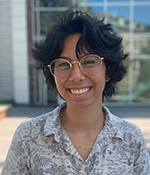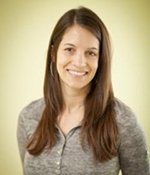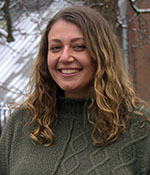About Wellness Services
Smith College Wellness Services provides interdisciplinary, culturally sensitive and inclusive health promotion services designed to enable our diverse student population to fully participate and thrive throughout their college experience. We are sensitive to how the components of our lives, from our identities to our lived experiences, impact our health and well-being.
Open Hours
Wellness open hours are hosted by professional staff members to provide confidential one-on-one support to Smithies. These hours are a great chance to get support and build healthy habits—we’re happy to talk about a range of topics including but not limited to sleep, gender identity, healthy relationships, substance use and harm reduction, and self-care.
If you would like an appointment with a health educator/peer mental health supporter, you can sign up here or contact wellness@smith.edu.
What Is Wellness?
Wellness is a lifelong journey, valuing everything we are as living beings, in the full complexity of our positive and negative experiences. We are whole people moving through the world as the world moves around us; as such, these definitions must grow and change along with us. Through our department, students can explore the multiple facets of wellness, including their physical, emotional, social and spiritual wellbeing.
Our Mission
Our mission is to advocate and promote student wholeness by providing inclusive and accessible peer support through wellness initiatives to protect students and help them define what wellness looks like in the context of their lives.
Our Wellness Philosophy
Maintaining physical, mental, social and spiritual well-being is a moving target—this work requires intention and care. We support the work of exploring and developing well-being in the context of our identities: physical, social, emotional, spiritual, ancestral, community, environmental, intellectual, financial and occupational life components.
Part of wellness involves addressing issues that impede wholeness and access to care on the individual and community level by naming and working to dismantle stigma and systemic ableism, capitalism, classism, fatphobia, homophobia, racism, sexism, transphobia and other forms of oppression in our community.
We believe in a community care model with an emphasis on connection. Well-being and self-care are the responsibility of the whole community. Well-being is dependent on the engagement of a wide range of stakeholders including one’s teachers, spiritual leaders, friends, families and the institutions with which one is connected.
Core Values
As a center, we value:
- The whole person: mind, body, soul and spirit
- Treating all individuals with respect and dignity
- Pursuing social justice and health equity
- Understanding wellness as an individual and community pursuit
Binder Library
The Smith College Binder Library provides education around safe chest binding and a discrete environment to try on a binder before buying one. We have a wide array of sizes and colors. If finances are a barrier, we’re happy to help you apply for funding. If you need assistance finding the right fit, a staff member is available to provide support.
What is the binder library?
The binder library is a free, discrete resource for Smith students to help assist in selecting the right binder and checking fit. We have a collection of binders from both TomBoyX and GC2B in a wide variety of colors, sizes (XS to 4XL), and styles, as well as a staff person who can help assist in measuring and finding the right fit.
Can I have a binder from the library?
The binders are for trying on and determining the right size; we cannot give them away. We have a handful of second hand binders we can give away. If buying a binder is a financial burden, we can help you apply for funding through Smith or other organizations.
Where can I get funding for a binder?
The Emergency Medical Fund, found on the Smith Social Network, covers up to $80 in funding for binders per student per year.
Who helps out?
The binder library was funded by the Resource Center for Sexuality and Gender and is maintained by the Wellness Department. In Spring of 2022, the staff binder librarian is Sunny Windorski (they/he). Sunny graduated from Smith in 2020 and has first hand experience binding; they are happy to help in any way they can. Feel free to reach out at awindorski@smith.edu.
How does privacy work?
Binder library appointments are scheduled in the same block as one on one wellness appointments; this means that you could be coming into the office for any reason. There are a few private spaces where students can try on the binders, including spaces with mirrors and spaces without mirrors.
Is the binder library accessible?
The binder library is located on the second floor of the Schacht Center—there is an elevator that can take you to the second floor if you need it.
Where is the binder library?
We are located in the Wellness Department on the second floor of the Schacht Center.
How can I use the binder library?
Please schedule an appointment. If none of those times work, email awindorski@smith.edu to schedule an appointment.
Is there information on binder safety?
Yes! When you visit the binder library, you can chat with Sunny about binder safety. We also have information you can take home with you.
Staff
 |
Sunny Windorski | (they/he)Health Educator Sunny Windorski studied psychology at Smith. They previously worked on the Massachusetts COVID response where they contact traced, provided peer mental health support and chaired the Sexual Orientation Gender Identity and Expression working group. While working for the state, they created and oversaw LGBTQIA+ best practices in healthcare training for their colleagues and provided a variety of group and individual interventions for mental health support. They are passionate about mental health, BIPOC well-being and trans health. Outside of work, you can usually find Sunny trying out a new recipe or spending time in nature. |
 |
Katie Oleksak, M.Ac. Lic.Ac.Acupuncture and Pain Management Katie Oleksak has always had an interest in alternative medicine and knew that her profession would somehow be related to healthcare. Not knowing exactly how this would manifest, she began researching educational opportunities and learned about the New England School of Acupuncture (NESA). She received both a master of acupuncture (2011) at NESA and a master of science in pain, research, education and policy from Tufts University School of Medicine in 2011. She also has a certificate in herbal medicine from the Boston School of Herbal Studies apprenticeship program. She has more than a decade of experience working at natural food stores with an interest in herbal medicine and supplements for both preventative care and treatment of a wide range of acute and chronic conditions. Katie feels strongly about the integration of acupuncture, diet, nutrition, and alternative therapies for overall health and wellness. She values supporting local businesses in her community, agriculture, and using food as medicine. She is known to provide simple, effective, and powerful acupuncture treatments to her patients for a variety of ailments including but not limited to: stress, anxiety, insomnia, pain, allergies, digestive issues, migraines and hormonal imbalance. Katie has been working with Smith students since 2016, and has incorporated virtual wellness visits throughout the COVID-19 pandemic. |
 |
Samantha Myers, RDNRegistered Dietitian In her role as dietitian, Samantha partners with students to help create a customized approach to eating. Samantha’s approach is tailored to individual needs to help students optimize their health and wellbeing and to nourish the body and mind, without weight bias. Samantha joined the Schacht Center team in January 2023, and we are grateful to have her perspective and expertise. Samantha graduated from the University of Massachusetts Amherst with a bachelor’s of science in nutrition in 2019. She then went on to complete a dietetic internship through Keene State College from 2019–2020, working with student populations at Southern New Hampshire University and Dartmouth College, and focusing on sports nutrition and eating disorders. Samantha received her Registered Dietitian certification in August 2020. Her professional experience includes working with inpatient clients at the Brattleboro Retreat, as well as outpatient one-on-one nutrition counseling for children, adolescents, and adults with eating disorders or for those looking to help improve their relationship with food. Samantha views her work through a thoughtful, inclusive lens, and seeks to remove size stigma from eating disorders and nutrition care in general. Samantha follows the Health at Every Size (HAES) paradigm and believes in intuitive eating. Samantha is always trying to learn and grow as a clinician, especially in the realms of gender-affirming care and fat activism. When not at work, Samantha enjoys cooking (and eating the meals she makes), watching a good show, and getting outside for some joyful movement. |
